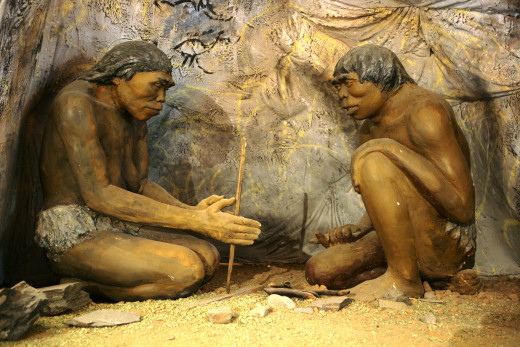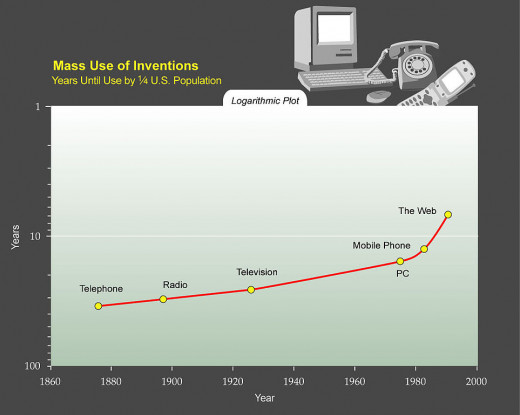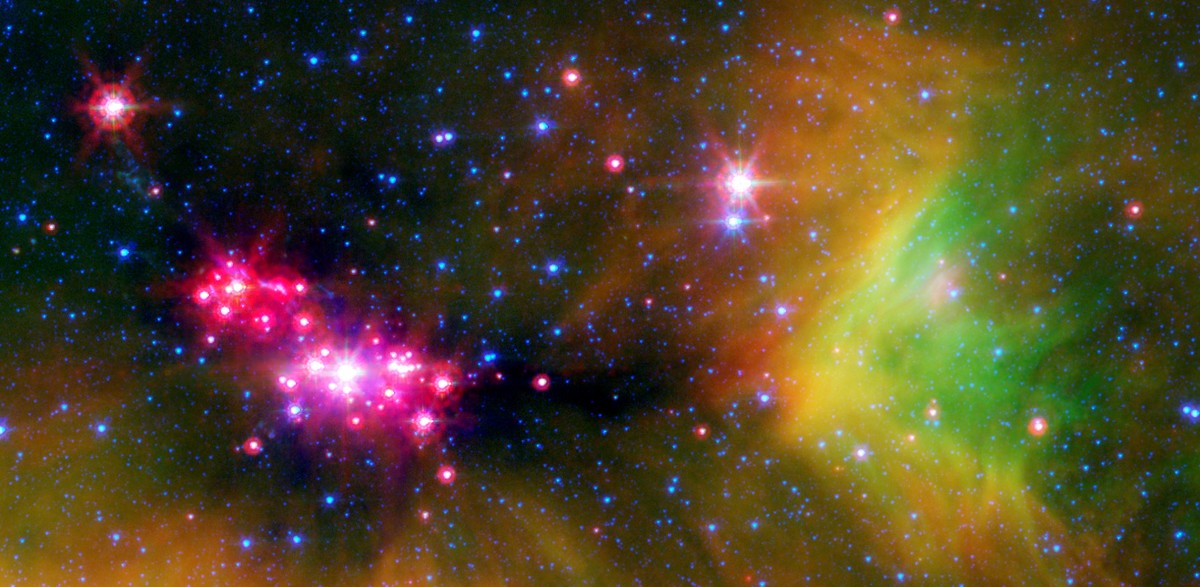Transhumanism: The Next Step in Becoming Human?
"Transhumanism" or Transcendence?

Every Movement Needs a Great Buzzword
Want to have the ability to move things around with your mind, print out any new body parts you might need, including organs, and be able to work from home every day via a completely convincing virtual reality setup? All of these things are not only within reach, according to a movement that is gaining traction more rapidly than almost any other in history, but they are inevitably happening within the next 30 years. Many authors (myself included) struggle to give a name to this incredible movement, instead deferring to the event where all of this converging technology culminates in a brand new way of life for all human beings, utterly different in ways we aren't capable of imagining with our "unaugmented" human brains: the Technological Singularity.
Futurists like Ray Kurzweil (in his incredibly acclaimed The Singularity Is Near: When Humans Transcend Biology) have put forth a timeline for the Singularity, and the time frame most futurists tend to agree on is within the next 30 years or so. Why does this seem so unbelievable to us? It's simple: because we think in a linear fashion, not in an exponential one. Kurzweil's favorite example to illustrate this point involves taking 30 steps forward. At step one, you've taken one step forward, and at step 30, you've taken 30 steps. With exponential growth (simply doubling the distance covered with each step), at step 1 and 2, you're still only one and two steps forward, respectfully, but by step 3, you're 4 steps forward, and by step 30, you're a billion steps forward.
The world we live in is not one of linear growth, nor has it ever been one. Our growth as a species has been exponential since the very beginning, because we've always "stood on the shoulders of giants" with our technology, ultimately using the last great invention to actually create the next one. This is nowhere more apparent than with Moore's Law, the observation that computing power, speed, and price-performance double every 2 years or so (technically, Moore's Law is much more specific, but we'll go with the more popular meaning for the purpose of ease of use).
While the word "Singularity" is captivating, and perhaps even appropriate, it describes a single approaching event, but not really the concept or the ensuing movement as a whole. Enter the word "transhumanism", now extremely en vogue. "Transhumanism" first appeared on the scene in the 1980s, but didn't gain widespread popularity until the last year or so. It has become the phrase to describe what many of us believe, much to my chagrin.
Poll- Vote!
When will the technological singularity occur?
What makes us human?
Perhaps the best way to explain the visceral objection I have to the word "transhumanism" is to start by describing exactly what it is that makes us human beings in the first place. What do we do better than all of the other species out there, and how long have we been doing it?
Well, I heartily recommend Wikipedia's Timeline of Historic Inventions as a place to start understanding who we are. What does it mean to be human? It starts with two simple things: using tools to manipulate our environment (controlling fire and then building our own shelters), and then communicating with language. Both of these two innovations fall under the slightly broader category of what we call "technology." As we can see, technology has always been a part of who we are.
When I hear people talking about how great anarcho-primitivism is- the concept that we need to stop using all technology and live in the wild- I have to remind myself that not everyone is taking advantage of the wealth of information available to us. We've got to realize that going back to such a time would mean hunting without spears, because spears are technological innovations (albeit from several hundred thousand years ago). We also wouldn't want to draw the animals or tell our fellow humans what the animals look like, because art and language are two technological innovations (and you can follow the logical progression up the ladder through time, from oral language to written language, to the printing press, to the Linotype machine, to digital data and the current computer and internet revolution).
Our use of technology is exactly what makes us human. We are able to grasp objects because of our opposable thumbs, and a million years ago or so we started tinkering with things, ultimately making improvements to these things- and, more importantly, showing others how to make these improvements so that future generations didn't have to figure the same thing out. Standing on the shoulders of our ancestors, we no longer have to figure out how to control fire, or how to have running water in our houses, or how to search for things on the internet in a matter of seconds.

Kurzweil on the evolution of the human brain, past and future
Humanism 2.0
What we're becoming, then, isn't the next logical species according to Darwinian evolution. Instead, we are going to continue to do what we've always done: be human. We're going to continue to innovate and build new technology based on the last technological paradigm our ancestors (or we ourselves, since the time it takes to come up with new stuff is shortening every day) created. We are, today, in the midst of an amazing time where we can see the pace of change accelerating for perhaps the first time in humanity's history, where the impact of a new invention can not only be felt virtually immediately worldwide, but the next great innovation can take place within days instead of centuries.
Let's enjoy continuing to become human and see where our species takes us.
Inventions, or standing on the shoulders of giants








